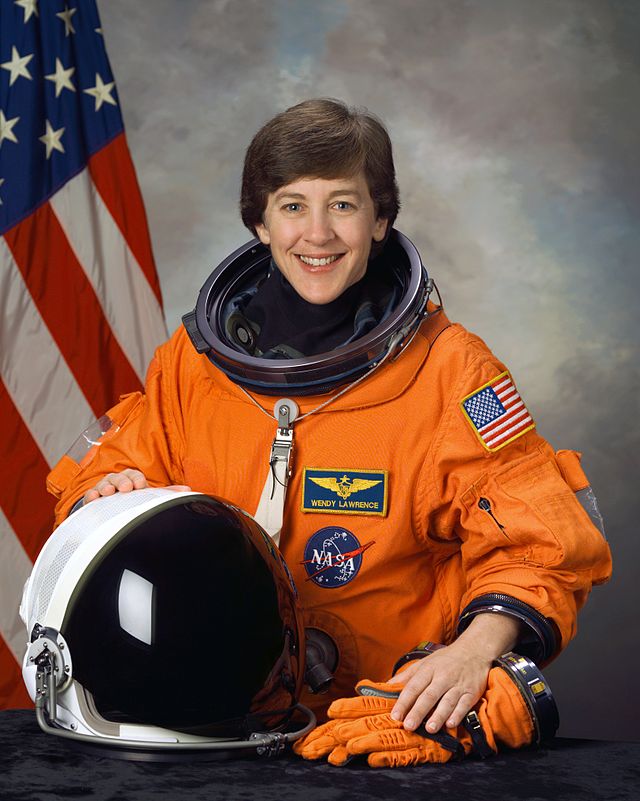As the first American woman in space, the late Sally Ride made it her mission to encourage girls to dream big and pursue careers in Science, Technology, Engineering and Math (STEM) fields. Before she passed away, Dr. Ride founded Sally Ride Science, an organization offering workshops, festivals and scholarships. This weekend, the University of Washington's Bothell campus will host the Sally Ride Science Festival, featuring exhibits, workshops and guest speakers from various STEM backgrounds, including former Shuttle astronaut, Capt. Wendy Lawrence.
Capt. Lawrence joined host Margaret Larson to share her own space experience (see complete list below), including STS-114 aboard the shuttle Discovery in 2005, the first mission following the shuttle Columbia disaster two years earlier. She also talked about the importance of inspiring middle school students, especially girls, to pursue STEM subjects, as well as what they hope to accomplish at this weekend's science fest.
The Sally Ride Science Festival takes place Saturday, October 4 from 11:00am - 4:15pm at the University of Washington's Bothell Campus. The event will feature workshops, exhibits, activities and special guest speakers, including Capt. Lawrence. Please click here for more information and to register.
Connect with UW Bothell on Facebook and Twitter: @UWBothell
Connect with Sally Ride Science on Facebook and Twitter: @SallyRideSci
![640px-Wendy_Lawrence_NASA_STS114[ID=16531869] ID=16531869](http://www.gannett-cdn.com/-mm-/3240cdaf200b4365b12f1f8ddab44ce74d49ad84/c=0-86-640-568&r=115x86/local/-/media/NWGroup/None/2014/10/01/1412178599000-640px-Wendy-Lawrence-NASA-STS114.jpg)
(Capt. Wendy Lawrence/former NASA astronaut)
Here's a recap of Capt. Wendy Lawrence's Shuttle missions:
STS-67Endeavour (March 2-18, 1995) was the second flight of the ASTRO observatory, a unique complement of three telescopes. During this 16-day mission, the crew conducted observations around the clock to study the far ultraviolet spectra of faint astronomical objects and the polarization of ultraviolet light coming from hot stars and distant galaxies. Mission duration was 399 hours and 9 minutes.
STS-86Atlantis (September 25-October 6, 1997) was the seventh mission to rendezvous and dock with the Russian Space Station Mir. Highlights included the exchange of U.S. crew members Mike Foale and David Wolf, a spacewalk by Scott Parazynski and Vladimir Titov to retrieve four experiments first deployed on Mir during the STS-76 docking mission, the transfer to Mir of 10,400 pounds of science and logistics, and the return of experiment hardware and results to Earth. Mission duration was 169 orbits in 259 hours and 21 minutes.
STS-91Discovery (June 2-12, 1998) was the 9th and final Shuttle-Mir docking mission and marked the conclusion of the joint U.S./Russian Phase I Program. Mission duration was 235 hours and 54 minutes.
STS-114Discovery (July 26-August 9, 2005) was the Shuttle Return to Flight mission which evaluated new procedures for Shuttle inspection and tested repair techniques. Discovery docked with the International Space Station and transferred over 11,000 pounds of cargo. Mission duration was 333 hours and 32 minutes.


